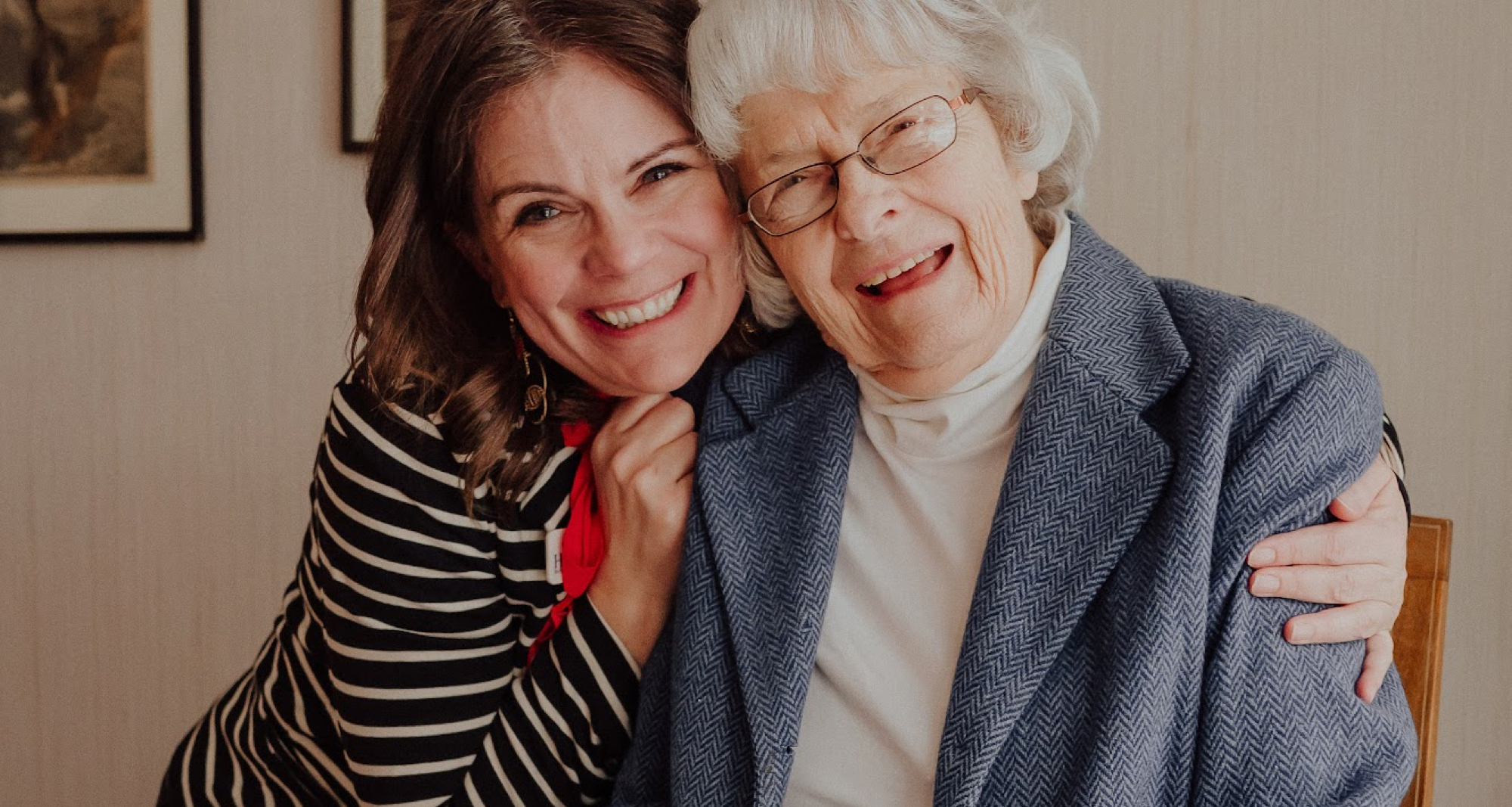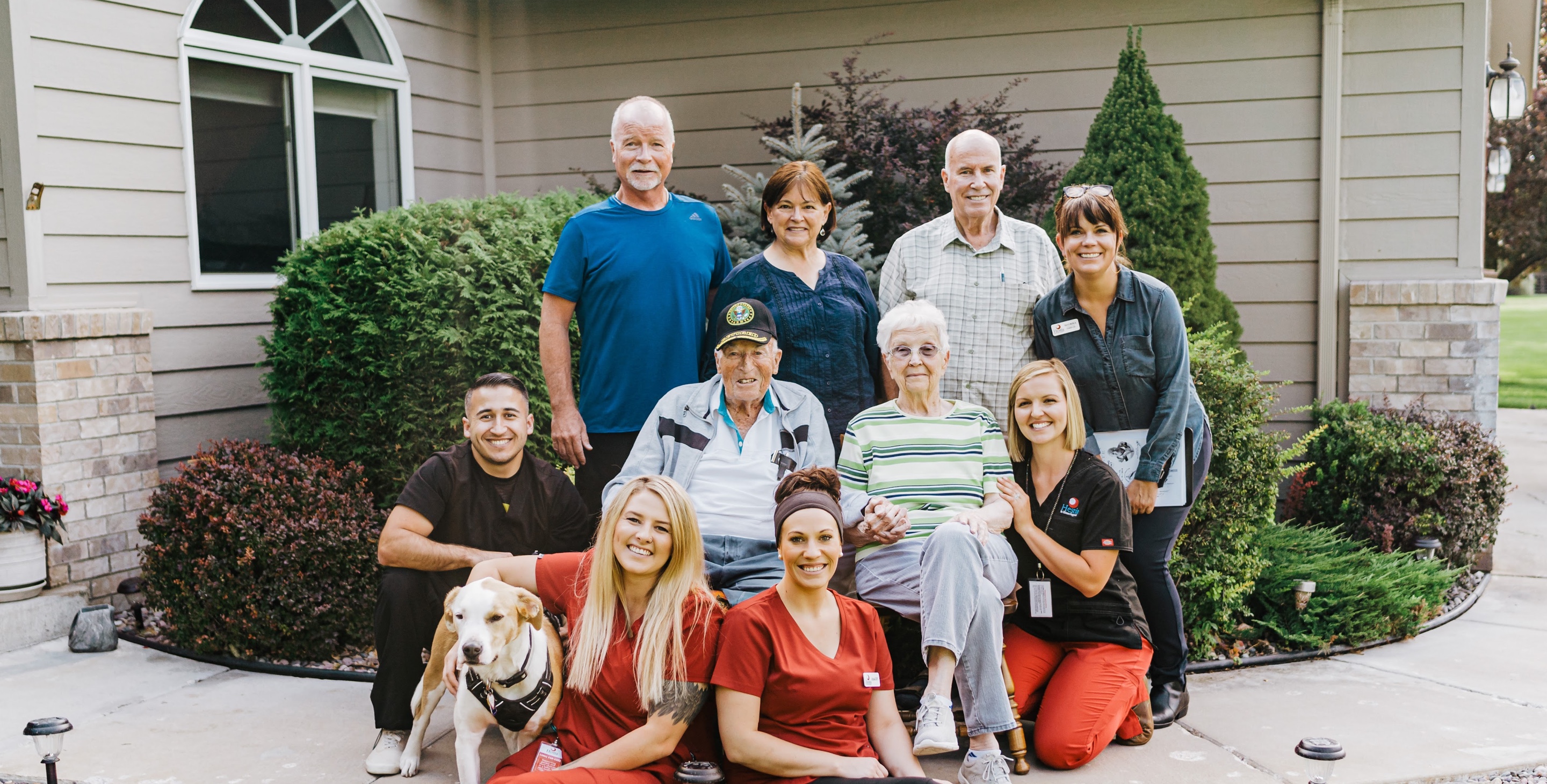Hospice Care
Welcome to Hestia Advantage Hospice Care
At Hestia Advantage Hospice Care, we understand the challenges that come with serious illness and end-of-life care. Our mission is to provide compassionate support and comfort to patients and their families during this difficult time. With a focus on dignity, respect, and quality of life, our team is dedicated to ensuring that each individual receives personalized care that meets their unique needs and preferences.
Our Approach
At Hestia Advantage Hospice Care, we believe in a holistic approach to hospice care that addresses the physical, emotional, social, and spiritual needs of our patients. Our interdisciplinary team of professionals works together to provide comprehensive support and services that enhance quality of life and promote comfort and dignity.
Compassionate Care Team
Our team consists of experienced professionals who are passionate about providing the highest quality of care to our patients and their families. From physicians and nurses to social workers, chaplains, and volunteers, each member of our team plays a vital role in ensuring that our patients, and their loved ones, receive the support and comfort they need during their end-of-life journey.
Services We Offer
-
Pain & Symptom Management Our team is experienced in managing complex symptoms associated with serious illness, including pain, shortness of breath, nausea, and fatigue. We work closely with patients to alleviate discomfort and improve quality of life.
-
Emotional & Psychosocial Support We understand the emotional challenges that come with serious illness, both for patients and their loved ones. Our team provides counseling, support groups, and other resources to help individuals cope with the emotional impact of their condition.
-
Caregiver Support We recognize the vital role that caregivers play in the lives of our patients. We offer education & training, and other support services to help caregivers navigate their caregiving journey with confidence and compassion.
-
Advance Care Planning We assist patients in documenting their healthcare preferences and making informed decisions about their future care. Through advance care planning, we empower individuals to maintain control over their medical treatment and ensure that their wishes are respected.

Why Choose Hestia Advantage Hospice Care?
-
Expertise Our team consists of experienced health care professionals who are dedicated to providing high-quality, evidence-based palliative care.
-
Compassion We approach each patient with empathy, respect, and dignity, recognizing the uniqueness of their journey.
-
Collaboration We work closely with patients, families, and other healthcare providers to ensure seamless coordination of care and support.
-
Patient-centered Care We prioritize the preferences and goals of our patients, empowering them to make informed decisions about their care.
-
Community Engagement We are actively involved in our community, advocating for improved access to palliative care services and supporting initiatives that promote quality care in life's final journey.
Hestia Hospice Ethics & Philosophy
Hospice care seeks to replace taboos about death with an open dialogue that helps patients and their loved ones plan for living well during the time that they have remaining together, until the patient's eventual passing. Hospice teams support dying patients in their home and in most clinical settings - whichever environment serves patients and their families best. The modern hospice movement is easily linked to old monastic practices that combined religious care with health care and service (note that the word hospice shares the same root word as hospitality). Monks did not pray for the sick and dying from the privacy of cloisters. Instead, monks were on the forefront of holding hands, wiping brows, providing nourishment and water, and keeping vigil at the bedsides of those coming to the end of their lives. Their sense of purpose was to ensure that no one died alone.
Hospice and the “Good Death” Dame Cicely Saunders was a nurse who became a doctor and picked up on these monastic themes of care in the mid-20th century, creating St. Christopher's Hospice in London specifically for the care of dying patients. Going against the grain of medical practices at the time, and even in medicine now, Dr. Saunders introduced healthcare practices that do not see the body as a constellation of interchangeable parts to keep alive at any cost, but rather as a natural and holistic system: mind, body, and spirit. Dr. Saunders instead introduced medical care that empowered patients to live well in the time remaining, and allowing medical teams to accompany patients in achieving a “good death.” In 1963 she lectured about these practices at Yale University and thus birthed the U.S. branch of the hospice movement for the benefit of anyone facing death.
Alleviating Suffering in All Forms Patients enjoy frequent communication with a team of people interested in relieving pain and discomfort by utilizing prescription pain relievers, generic drugs, and all available medical technology. Medicine and medical technology can be used to support the patient as he/she continues to progress through the journey of end-of-life. A hospice professional may also provide suggestions for relieving pain without medication that may be useful in addition to their physician prescribed treatment.
Effective Pain and Physical Symptom Management A major focus of hospice care is the alleviation of physical suffering through pain management. This is emphasized so that patients are able to feel more comfortable and can achieve a higher quality of life overall. A hospice team will work closely and collaboratively with a patient to reach their quality of life goals by effectively managing pain and other unwanted physical symptoms.
Treating the “Whole” Patient Hospice recognizes that physical pain is not the only pain that can need support at the end of life, or anytime really. The hospice compassionate care model stands out from other forms of healthcare due to its emphasis on holistically treating the patient. Hospice care extends beyond solely addressing the physical ailments of a person and also seeks to nurture their emotional, mental, and spiritual needs. This is possible through the hospice interdisciplinary team that includes a group of diverse professionals, each with their own unique focus.
End-of-life Goals Many patients who are afflicted with a life-limiting illness have certain experiences that they wish to pursue. Perhaps this includes attendance at a major family celebration, travel to a sentimental location, completing a major project, or experiencing one last adventure. Hospice care teams are sometimes able to work with patients and their families to articulate those goals and seek to provide circumstances that best allow patients to achieve their last wishes. A Physician's Order for LIfe Sustaining Treatment (POLST), an Advance directive, and other legal documents such as a medical power of attorney and a living will can provide clear direction on how to manage a patient's affairs just before, during, and after death - particularly if the patient becomes unable to make medical decisions for themselves.
Planning for Death In the March 1989 edition of the New England Journal of Medicine, Eric Cassel captured the spirit of hospice by writing best, saying, “As sickness progresses toward death, measures to minimize suffering should be intensified. Dying patients require palliative care of an intensity that rivals even that of curative efforts even though aggressive curative techniques are no longer indicated, professionals and families are still called on to use intensive measures, extreme responsibility, extraordinary sensitivity, and heroic compassion.”
Encouraging Advance Care Planning Death marks the end of a person's life, but it does not end. Acknowledgement that the person lived and was loved. Hospice teams can help patients and their families prepare for a patient's passing by encouraging advance care planning as listed above. Additionally, patients and families can work together on writing an obituary, can outline funeral and other memorial arrangements that honor a person's life which can ultimately help families to begin the grieving process. Furthermore, hospice believes in extending support to family members following loss. Bereavement care is offered to those who were close with the deceased as they begin to adjust to a new way of living without their loved one.

Here is the plan for your journey to peace of mind.
- 1 Contact us for a free in home evaluation and learn the benefits of home-based care.
- 2 Allow us to create an assessment and personalized care plan.
- 3 Hestia navigates insurance providers and develops clear pricing structure.
- 4 You meet your care team and Hestia begins to implement the care plan services.
- 5 Hestia maintains open and ongoing updates, reassurance and additional support when needed.
- Continuous review and adaptation of the care plan.